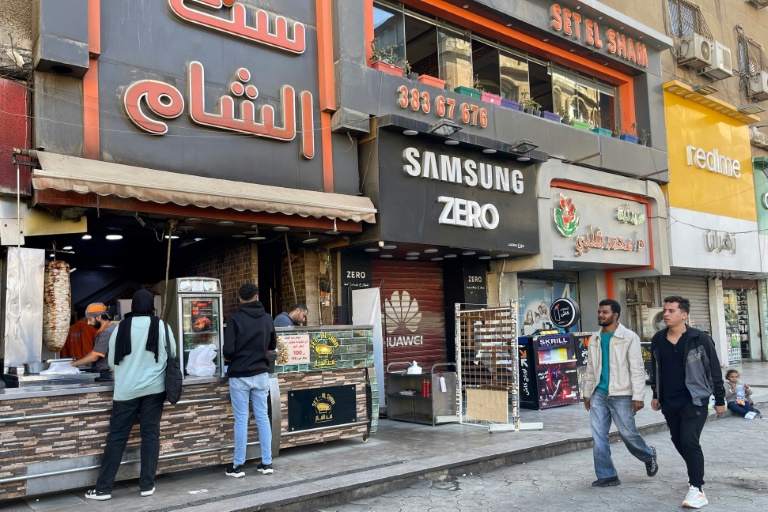Reda al-Khedr was only five when his mother escaped the siege of Homs in 2014. A decade later in Cairo, he can hardly believe the Syrian government that killed his father has fallen.
“I can barely remember Syria,” Khedr, now 15, told AFP in the Egyptian capital.
“But now we’re going to go home to a liberated Syria. We’re done with Bashar al-Assad and his corrupt regime,” he said on Sunday, still blinking in disbelief at rebel groups’ lightning offensive that toppled the Assad family’s five-decade rule earlier in the day.
Khedr’s father, who disappeared in 2014, was confirmed killed last year, mere months before rebel forces led by the Islamist Hayat Tahrir al-Sham opened prison after prison, freeing thousands.
“Maybe he would have been freed too,” lamented the teenager, who calls himself part of Syria’s “new generation that will rebuild even better than before”.
Since 2011, when Assad’s crackdown on pro-democracy protests sparked the civil war, around 1.5 million Syrians have sought shelter in Egypt, according to United Nations estimates based on government data.
Around 150,000 are registered refugees with the UN.
In western Cairo on Sunday, where Syrian businesses have clustered, the air buzzed with celebration.
“The team is so happy half of them didn’t show up to work,” said one manager of a Syrian restaurant.
“They spent all night celebrating. Now we’re short-staffed,” he told AFP over his shoulder, rushing to customers.
Mohamed Feras, a 32-year old sales clerk in a nearby store, spent all night and well into Sunday afternoon with his eyes glued to the news.
He peeled his gaze away just long enough to say: “I haven’t seen my family in 13 years. Now I can finally go home.”
Like countless others, Feras — then 19 — fled across borders to escape Syria’s mandatory military service.
“Now my family’s already asking me what I want my first meal in Damascus to be,” he told AFP, his voice giddy with excitement.
For the thousands of Syrian entrepreneurs who established businesses and set down roots in Egypt, returning “won’t happen overnight,” 36-year-old chef Mohamed al-Shami told AFP, “but we will return”.
Shami — a business student back in Syria before taking a Cairo restaurant job — said his family home near Damascus “was shelled to the ground, but we’ll build it back up”.
Shami, like others who spoke to AFP, knows challenges lie ahead but has faith in his fellow Syrians scattered across the world.
“I have never lost hope and I’m not scared now,” he said, adding that he “I knew this day was coming and I know what’s coming can’t be worse than what we’ve left behind.”
For Shawkat Ahmed, a 35-year old manager at a confectionery store, “there’s no turning back now,” despite “some fears of chaos taking hold”.
His first reaction, he said, was wondering “what happened to Bashar, did they kill him or did he run away like a cockroach?”
Others felt the twinge of grief in their joy.
Yassin Nour, 30, said he has spent nearly half his life in the shadow of the “destruction, killing, displacement and terror” that followed the Syrian uprising.
“I can’t help but think of my friend who called for freedom 15 years ago, I wish he could see this,” the Aleppo native told AFP.
And for Egyptians who have grown accustomed to living side by side with Syrians, the celebration is slightly bittersweet.
“You can’t just leave us now,” one Egyptian patron told a Syrian seller in a confectionery.
Handing him free samples, which he called “victory sweets”, the seller promised, “you’ll visit us in a free Syria”.







